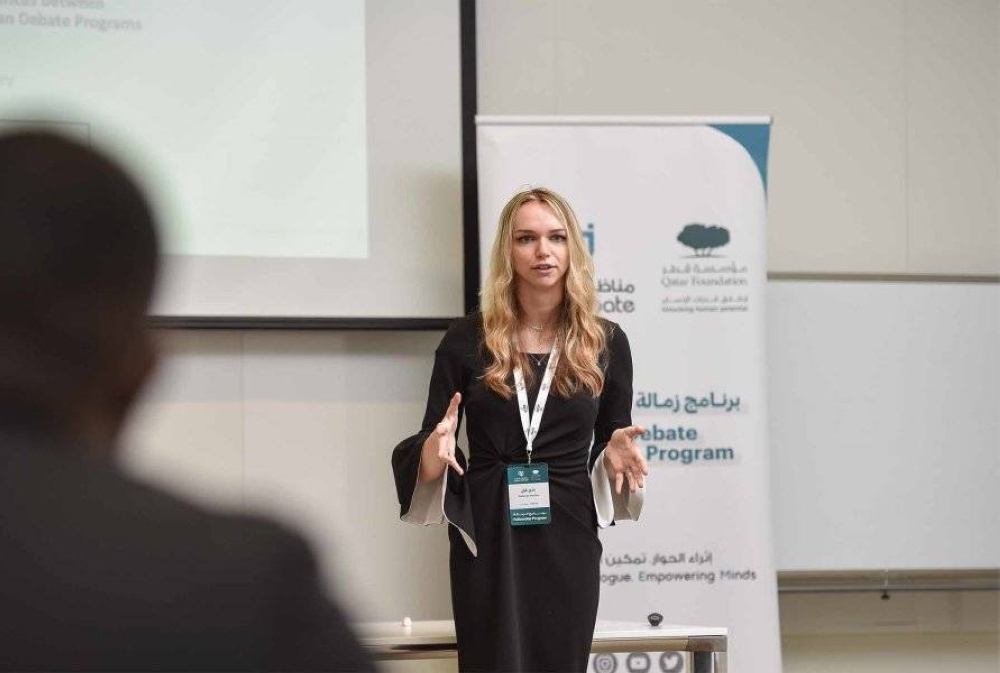Women from the Arab world have a broader and easier opportunity than their counterparts in the West to participate in debates, a Harvard University graduate said recently.
Delaney Hurley, a member of the Qatar Debate Fellowship Programme, part of Qatar Foundation (QF), and a graduate of Harvard University, is working on a comparative study to identify practices that enhance the role of female debaters.
Hurley, according to an article on the QF website, emphasised that her personal experiences proved to her that women in the West suffer a lot from male biases in the field of debate.
Hurley explained that, contrary to what might be imposed by the stereotype about women in the Arab world, she saw that Arab women participated more than men in debates, and even achieved higher rates and results.
Hurley noted that unlike mathematics for which there is an absolute answer – right or wrong – the winners in debate rounds are chosen by judges who decide the most convincing participants, and as a result, women are vulnerable to prejudices and stereotypes. “These biases affect the winner of debate rounds in ways that may not be apparent to some,” said Hurley.
“For example, high-pitched voices – which in the Western world are typically associated with women – are often seen as unpleasant by judges, let alone a woman’s clothing, which may also greatly affect the opinion of the judges. Wearing dresses, for example, would emphasise femininity and highlight stereotypes that suggest an incompatibility between intelligence and beauty, while wearing a suit reflects men's clothing, which may not be liked by many members of the debate jury in the West and influence their decisions.”
“I am fascinated by the experience of women's success and superiority in debates in the Arab world, and for this reason, I am currently working on research on this phenomenon through a comparative study with the United States, and I really believe that we have a lot to learn by studying the successful model of women in the Arab world. So, I am optimistic that my study can lay the groundwork for identifying successful practices that US debate programmes can implement," she noted.
According to Hurley, at its core, debates are an empowering activity that gives participants the skills to stand up for themselves and for the issues that affect them the most," and if we allow women to be excluded from the field, we allow them to be silenced, whether they know it or not."
Dr Hayat Marafi, executive director of QatarDebate, explained that they are continuously working to support young people and provide them with the necessary tools to become thinkers and leaders in their communities.
“Through the national debating team, we create opportunities to represent Qatari women by training them. We have witnessed the successful participation of women from all over the Arab region, especially Qatari women, in many international competitions organised by QatarDebate, and we have built a global network of female debaters who lead dialogue projects in their countries,” added Dr Marafi.

Delaney Hurley.
